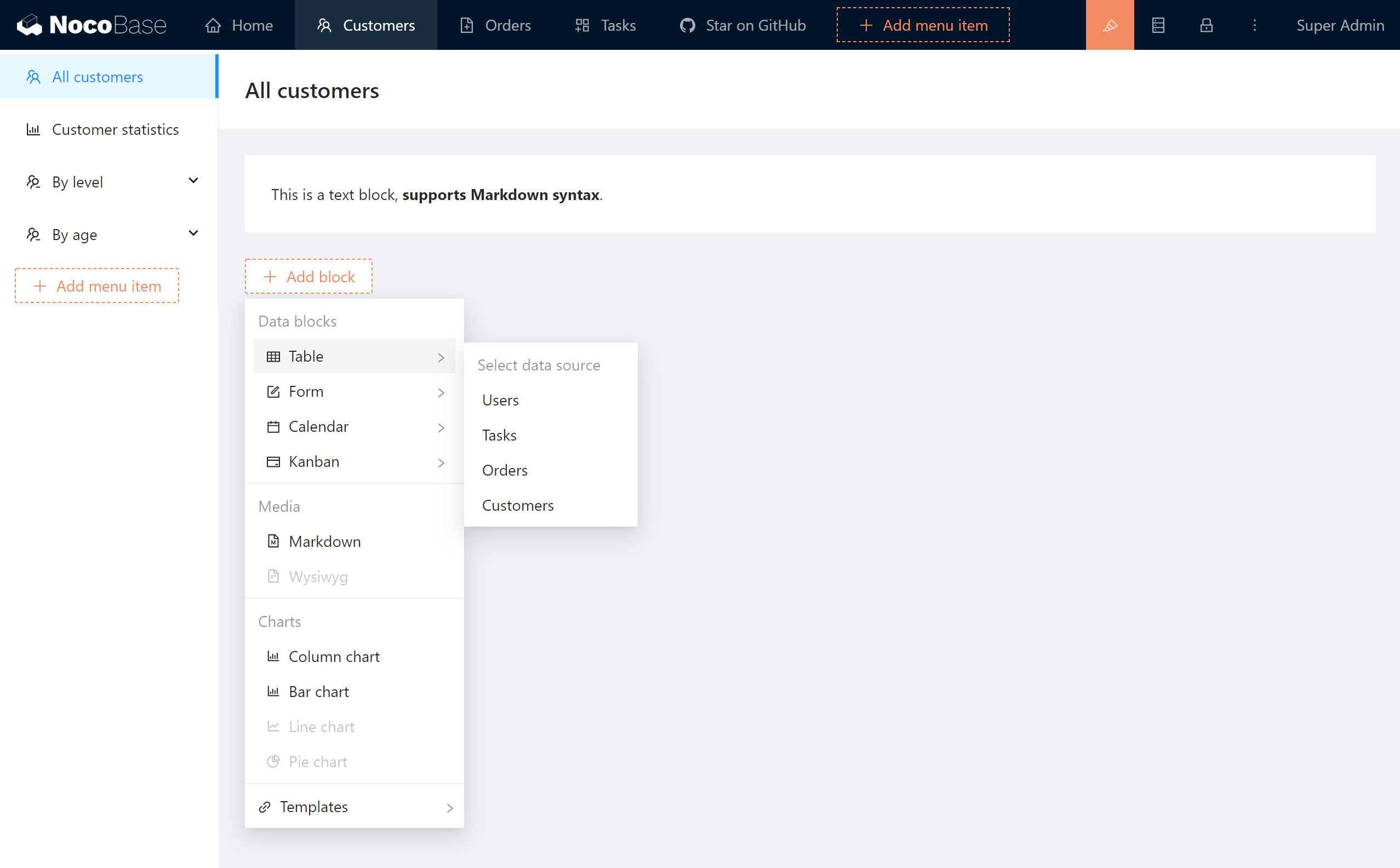English | 中文
Note: 📌
NocoBase is in early stage of development and is subject to frequent changes, please use caution in production environments.
We are looking for new full-time, remote product design, development, and testing colleagues to join the team. If you have a strong interest in NocoBase, please feel free to email us at [email protected].
NocoBase is a scalability-first, open-source no-code development platform. No programming required, build your own collaboration platform, management system with NocoBase in minutes.
Homepage:
https://www.nocobase.com/
Online Demo:
https://demo.nocobase.com/new
Documents:
https://docs.nocobase.com/
Contact Us:
[email protected]
NocoBase is designed for you if you have the following needs.
- Develop an internal management system
- Meet most of your business needs with no-code development
- No-code development is simple enough for non-developers; flexible enough to be close to native development
- Can be very easy to extend
- Private deployment with full control of code and data
- Free to use or pay for more technical support
Most form-, table-, or process-driven codeless products create data structures directly in the user interface, such as Airtable, where adding a new column to a table is adding a new field. This has the advantage of simplicity of use, but the disadvantage of limited functionality and flexibility to meet the needs of more complex scenarios.
NocoBase adopts the design idea of separating the data structure from the user interface, allowing you to create any number of blocks (data views) for the data collections, with different type, styles, content, and actions in each block. This takes into account the simplicity of codeless operation, but also the flexibility like native development.
NocoBase enables the development of complex and distinctive business systems, but this does not mean that complex and specialized operations are required. With a single click, configuration options can be displayed on the usage interface, which means that administrators with system configuration rights can configure the user interface directly with WYSIWYG operations.
NocoBase adopts plugin architecture, all new features can be implemented by developing and installing plugins. In the future, we will build a plug-in marketplace where extending functionality is as easy as installing an APP on your phone.
NocoBase supports three installation methods:
-
Installing With Docker (👍Recommended)
Suitable for no-code scenarios, no code to write. When upgrading, just download the latest image and reboot.
-
Installing from create-nocobase-app CLI
The business code of the project is completely independent and supports low-code development.
-
Installing from Git source code
If you want to experience the latest unreleased version, or want to participate in the contribution, you need to make changes and debug on the source code, it is recommended to choose this installation method, which requires a high level of development skills, and if the code has been updated, you can git pull the latest code.



